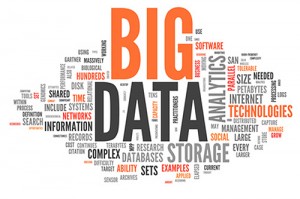“Big Data” promise in healthcare
Healthcare stakeholders have shown a welcoming response towards “Big Data.” There appears to be common consensus on the revolutionary potential of Big Data in healthcare. For several years, the industry has been struggling to find ways to cope with emergency room (ER) overcrowding, patient safety, cultural competency, quality of care, legal implications and financial burdens on public healthcare systems. Our current healthcare system seems like an uneasy coexistence between providers and patients!

The Big Data Revolution is on its way, starting with the dramatically increased supply of information. Over the last few years, pharmaceutical companies have been aggregating years of research into medical databases. Payers and providers are moving on to electronic health records. The federal government has been opening its vast stores of healthcare knowledge, including data from clinical trials and information on patients in public insurance programs. In addition, rapidly advancing computer tools have made it easier to collect and analyze information.
The Dallas-Fort Worth Hospital Council Foundation (DFWHC Foundation) securely houses a combined data warehouse with information on more than 8.2 million regional patients and more than 28 million hospital encounters for 95 percent of the hospitals in North Texas. We are proud of those considerable numbers developed over the past decade. The DFWHC Foundation has always been an avid supporter of data integration and healthcare information exchanges. We believe Big Data is a valuable opportunity for healthcare stakeholders to develop new business models.
The DFWHC Foundation’s experience suggests stakeholders will benefit from Big Data with an approach that focuses equally on healthcare spending and treatment outcomes. There are several factors to be considered for this model to determine overall success. They include:
• evidence-based coordinated and personalized care;
• performance logic for providers;
• improvement in providing value of care;
• promoting healthy lifestyles in patients;
• aligned with public and population health efforts;
• and continuing to identify new approaches and therapies in healthcare.
We look forward to continue to explore the potential of Big Data and what it means to the future of healthcare. We’re honored you can join us on this journey.
